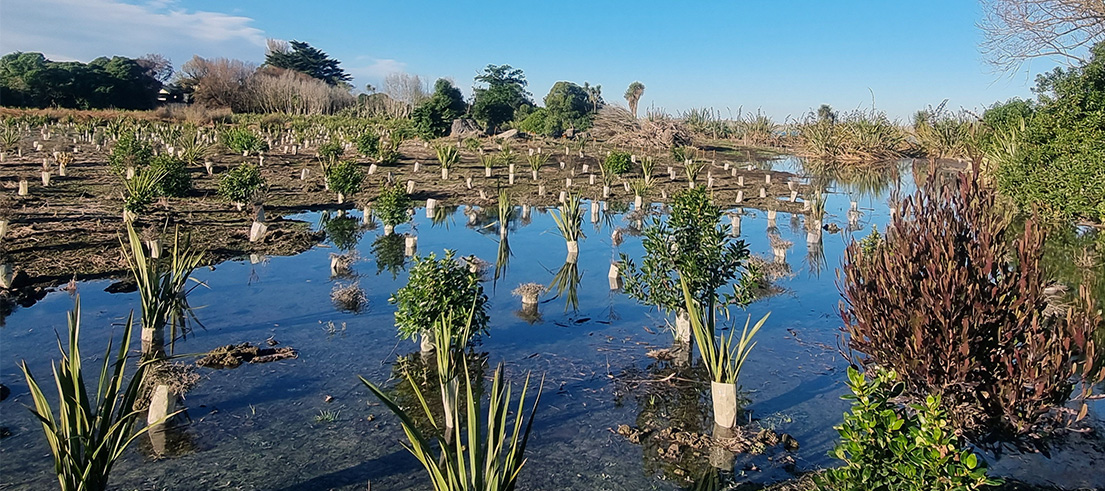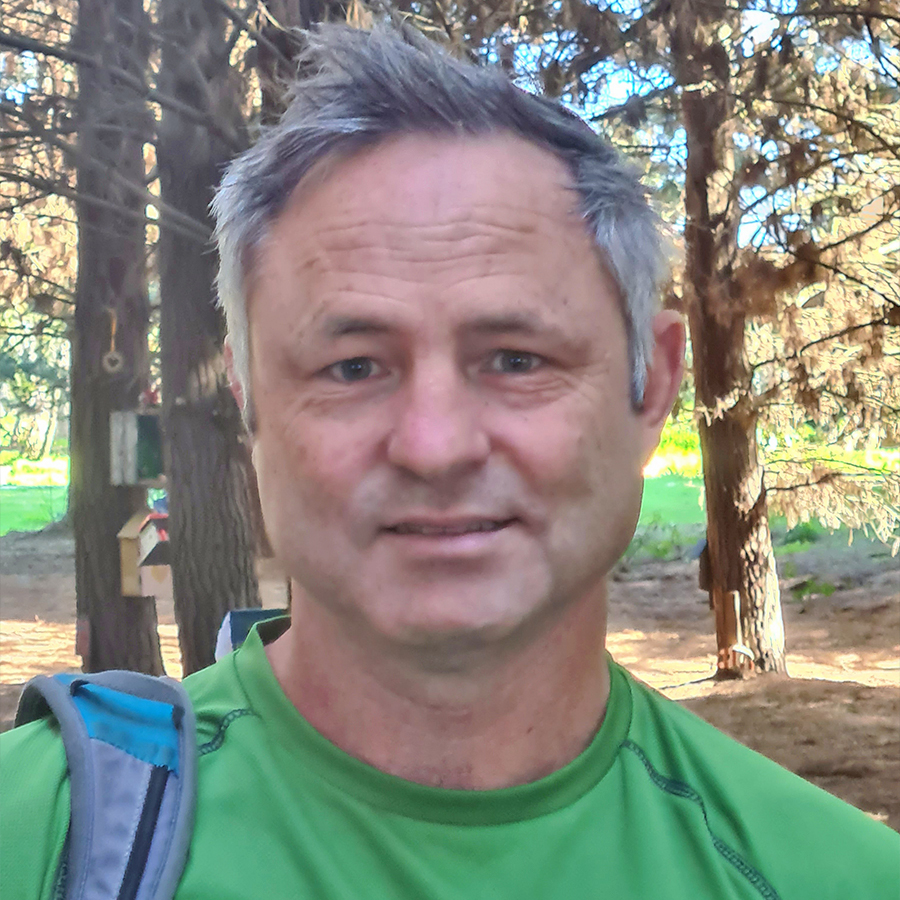
Selwyn Waihora environmental projects get funding push
Find out how the Selwyn Waihora Water Zone Committee will be supporting improvements to local water quality and biodiversity this year.
A shadehouse to help students grow plants, bug bags to improve stream health, and weed eradication at Boat Creek are among the projects to benefit from Selwyn Waihora Water Zone Committee Action Plan Budget support.
Zone committees are each allocated $75,000 annually to help fund projects that benefit the environment or engage the community on environmental issues.
This support in turn helps the committees meet the goals in their Action Plans - which outline their tactics for delivering on the targets of the Canterbury Water Management Strategy.
Selwyn Waihora Water Zone Committee’s Action Plan priorities include:
- enhancing mahinga kai, biodiversity and recreation opportunities
- raising awareness about the risks to private drinking water supplies
- supporting actions to restore Te Waihora to a healthy state
- facilitating actions to achieve catchment nutrient targets and water quality outcomes
- facilitating a community-wide approach to restore the Waikirikiri/Selwyn River back to a healthy state.
The projects receiving support are:
Ladbrooks’ Enviroschool shade house project
A shade house at Ladbrooks School is helping the students grow and produce plants for riparian use along part of the Huritini/Halswell River.
The aim is to help restore the health of the awa/river.
The shade house was built by Te Ara Kākāriki and $1,870 in zone committee support will go towards potting mix, gardening gloves, seed raising trays and shelving.
Lincoln High School’s Te Pā o Moki and Waikēkēwai - Year 9, taking action
This project enables students to learn about the mana of Waikēkēwai Stream, Orariki and Te Waihora, and the importance of increasing and managing riparian margins. This is achieved by teaching the students about mahinga kai, and through activities including weeding and planting.
$3,043 in zone committee support went towards student transport costs and 50 sets of gardening gloves.
Aquatic bug bags - Canterbury Waterways Centre
Canterbury Waterways Centre (run out of both Canterbury and Lincoln universities) will receive $4,475 to help create extra habitat for macroinvertebrates, in the form of bug bags. This in turn will help to support mahinga kai species higher up in the food chain, such as tuna.
The bags will be made from cheap, readily available natural materials (hemp bags stuffed with dry vegetation).
Local schools can deploy the bags as part of their outdoor activities, enabling them to interact with the Waikirikiri/Selwyn River. Canterbury Waterways Centre will work with Enviroschools to help facilitate this.
The funding will go towards materials and other project costs, and filming and video creation.
Te Motu Huritini o Ahuriri community planting day
Te Ara Kākāriki is being provided with $14,535 for a community planting day at Te Motu Huritini o Ahuriri. This will see 1,000 eco-sourced native seedlings put in the ground, adding to the years of previous planting at the site completed by Lincoln Primary School.
The funding will go towards projects costs such as materials (plants and guards), travel, maintenance and supporting the people who organize and deliver the community days.
Te Waihora GIS platform
The Te Waihora GIS platform is a partnership project to establish a digital map of projects delivered across various organisations. It’s being led by Environment Canterbury.
The platform has already been created, and the next phase is to work with partner organisations in the Whakakōhanga Kōrero forum (as representatives of the Te Waihora community) to understand their data needs, and support them to add their data/projects to the platform.
$12,880 in zone committee support will help action this work.
Upper Waikirikiri Catchment Collective - Upper Waikirikiri/Selwyn river restoration (community planting project)
The newly-formed Upper Waikirikiri Catchment Collective is keen to start some ecological restoration work around the Upper Waikirikiri/Selwyn river area.
$9,464 in zone committee support will enable the group to begin their restoration project in an area adjacent to the Waikirkiri.
The benefits of this project include; increased habitat for native wildlife, protection of the riverbank from erosion, and reducing the threat to native biodiversity – including downstream spread of weed seeds.
This initiative came out of a Glentunnel community meeting about establishing a catchment group and/or community project, and has strong community buy-in.
Boat Creek native bush restoration project
Boat Creek restoration project aims to restore the 18 ha reserve, adjacent to the Rakaia Huts village, to a fresh water and native bush habitat that will; sustain fish and bird life, improve water quality in the Rakaia Lagoon and River catchment, acknowledge the cultural significance of the area, and provide recreational access for everyone to enjoy.
The Rakaia Huts community is being supported with $7,800 to undertake woody weed eradication of a further two ha of heavily infested land, as part of the reserve restoration project.
Ellesmere Sustainable Agriculture Inc (ESAI) restoration coordination project
ESAI is receiving $10,000 to continue to promote and coordinate its successful Tinaku ecological restoration work. The project aims to protect and enhance remaining remnants and new native biodiversity within the Ellesmere area, and to improve water quality in lowland waterways that feed into Te Waihora/Lake Ellesmere and Muriwai/Coopers Lagoon.
The funding will be used to cover project coordination costs including interested parties, seek additional funding and draft restoration plans.
Quorum Sense curiosity day
Action plan funding helped support a ‘farmers curiosity day’ in November.
The event, hosted by the committee and Quorum Sense, was an opportunity for farmers, rural professionals and the community to learn more about the principles of regenerative farming techniques – and how these relate to healthy soils and water quality.
The day began with a workshop at Glentunnel community centre, which included several presentations on topics such as soil and plant health. This was followed by a farm visit, hosted by Melissa Scarlett and Deane Parker on Melissa’s family farm in Hororata, to see first-hand the benefits that bale grazing can offer.
Teaching our tamariki
Zone committee chair Matt Dodson says each of the projects will help the zone committee deliver on its Action Plan.
“This work will all help improve freshwater and biodiversity outcomes. Many of these projects are also about instilling a sense of kaitiakitanga/guardianship in our tamariki – teaching them to look after and respect our taiao/natural world.
"We look forward to watching these projects progress.”
Action Plan funding is also going towards three zone committee-led initiatives; Selwyn Waihora well water testing days (drop-in sessions to educate and raise awareness of nitrate levels in private well supplies), and two bus trips to Halswell and Rakaia - to help committee members learn more about the work underway in the respective catchments.

